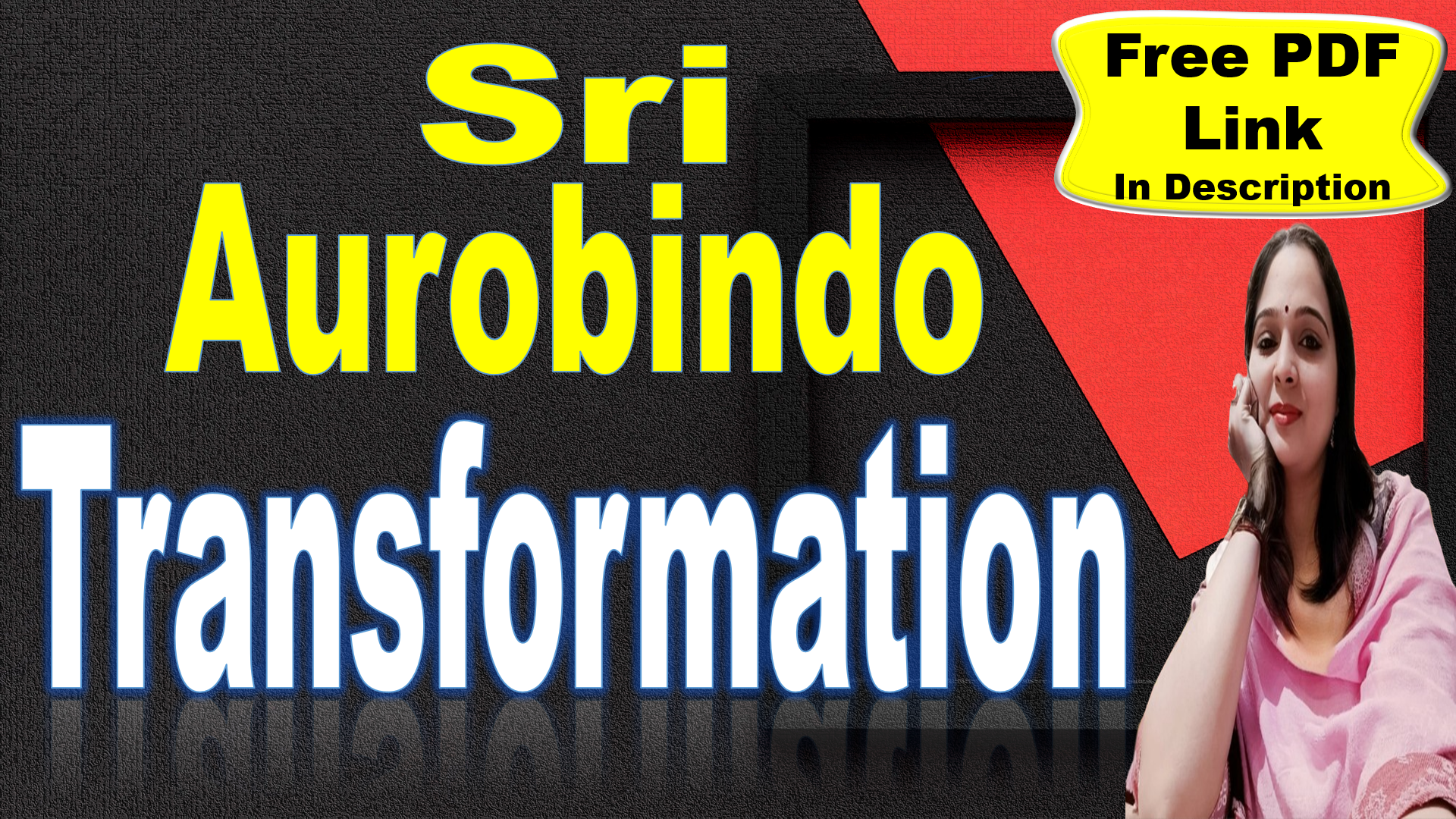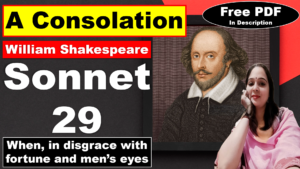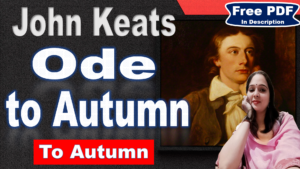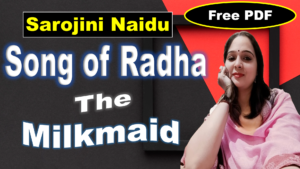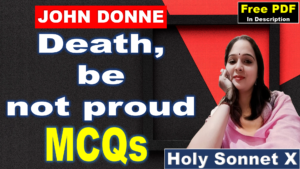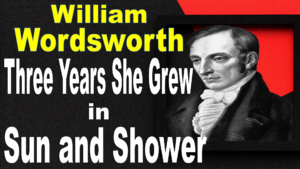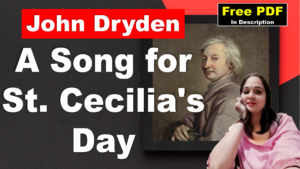line-by-line explanation of the poem
First Stanza
My breath runs in a subtle rhythmic stream;
It fills my members with a might divine:
I have drunk the Infinite like a giant’s wine.
Time is my drama or my pageant dream.
Explanation: In these lines, the speaker describes a profound spiritual experience. The phrase “my breath runs in a subtle rhythmic stream” suggests a steady and calm flow of energy or life force within them, indicating a sense of harmony and deep connection to something greater. The word “subtle” implies that this experience is gentle and almost mystical.
“It fills my members with a might divine” indicates that this energy fills their entire being (“members” refers to the different parts of their body) with divine strength or power. This suggests that they feel energized and empowered by a higher force.
The line “I have drunk the Infinite like a giant’s wine” uses a vivid metaphor to convey how the speaker has absorbed the infinite, limitless divine presence. Comparing this to drinking a giant’s wine implies that this is an immense, overwhelming experience that fills the speaker with a sense of power and vastness.
“Time is my drama or my pageant dream” suggests that time itself has become something like a performance or a dream to the speaker. This line conveys a sense of detachment from time’s limitations, as though the speaker now sees time as an illusion, a grand story that is no longer confining them.
Poetic devices:
Metaphor: “I have drunk the Infinite like a giant’s wine” compares the experience of absorbing divine energy to drinking a giant’s wine. This metaphor helps to convey the magnitude and intensity of the experience.
Personification: “Time is my drama or my pageant dream” gives a human quality to “time,” as if time itself is performing a drama or a pageant. This emphasizes the idea of seeing time as a spectacle, something that the speaker observes from a higher perspective.
Imagery: The lines are filled with imagery, particularly “subtle rhythmic stream,” “might divine,” and “giant’s wine,” which evoke vivid sensory experiences that help the reader imagine the speaker’s transformation. The imagery creates a sense of flowing energy and vast power.
Alliteration: In the phrase “subtle rhythmic stream,” the repetition of the ‘s’ sound creates a smooth, flowing effect, reflecting the gentle, continuous movement of breath.
Hyperbole: “I have drunk the Infinite like a giant’s wine” is also an example of hyperbole, as it exaggerates the act of taking in something limitless to emphasize the intensity and grandeur of the speaker’s spiritual journey.
Second Stanza
Now are my illumined cells joy’s flaming scheme
And changed my thrilled and branching nerves to fine
Channels of rapture opal and hyaline
For the influx of the Unknown and the Supreme.
Explanation: In these lines, the speaker describes their body and being as transformed by divine energy. The phrase “now are my illumined cells joy’s flaming scheme” suggests that the cells of their body are filled with light and joy. The word “illumined” implies enlightenment or divine illumination, while “flaming scheme” evokes a powerful, burning joy that spreads throughout their entire being. It suggests a complete transformation in which every part of the speaker is infused with intense joy and light.
The line “and changed my thrilled and branching nerves to fine channels of rapture opal and hyaline” suggests that the nerves in the speaker’s body, which were previously ordinary, have now been transformed into something extraordinary. The word “thrilled” indicates excitement or heightened sensation, while “branching nerves” emphasizes the complexity of the nervous system. These nerves have become “fine channels of rapture,” which means they are now pathways through which intense joy or bliss flows. Describing them as “opal and hyaline” adds a sense of beauty and purity, with “opal” suggesting iridescent colors and “hyaline” meaning glassy or crystal-clear, conveying the idea that these nerves have become refined, delicate, and almost otherworldly.
“For the influx of the Unknown and the Supreme” means that the purpose of this transformation is to allow the inflow of divine energy or presence. The “Unknown” and the “Supreme” represent something beyond ordinary human understanding, a higher power or divine force. This line suggests that the speaker’s body has been prepared to receive and channel this spiritual energy, which is both mysterious (“Unknown”) and divine (“Supreme”).
Poetic Device:
Imagery: The lines are rich with imagery, particularly “illumined cells,” “flaming scheme,” and “channels of rapture opal and hyaline.” These images create vivid pictures of light, joy, beauty, and transformation, allowing the reader to visualize the speaker’s spiritual state.
Metaphor: “Illumined cells joy’s flaming scheme” and “channels of rapture opal and hyaline” are metaphors that describe the speaker’s body in spiritual terms. The cells and nerves are depicted as being illuminated and transformed into something exalted, which conveys the idea of spiritual awakening and divine connection.
Symbolism: “Illumined cells” symbolize enlightenment and divine awareness, while “flaming scheme” symbolizes intense joy and divine energy. “Opal” and “hyaline” symbolize beauty, purity, and refinement, indicating that the transformation is not just physical but also spiritual.
Personification: “Joy’s flaming scheme” personifies joy, suggesting that it has a deliberate plan or purpose, which is to illuminate the cells of the speaker’s body. This adds depth to the portrayal of joy as an active force in the speaker’s transformation.
Third Stanza
I am no more a vassal of flesh,
A slave to Nature and her leaden rule;
I am caught no more in the senses’ narrow mesh.
Explanation: In these lines, the speaker describes their liberation from physical and natural limitations. The phrase “I am no more a vassal of flesh” means that the speaker is no longer bound or controlled by their physical body (“flesh”). A “vassal” is someone who serves another, implying that the speaker previously felt like a servant to the needs and demands of their body. Now, they feel free from those constraints.
The line “a slave to Nature and her leaden rule” expands on this idea of freedom. The speaker refers to themselves as no longer being a “slave to Nature,” meaning they are no longer controlled by natural laws or limitations. The phrase “leaden rule” suggests that the rules of nature are heavy, restrictive, and oppressive, like lead. By breaking free from this “leaden rule,” the speaker feels unburdened and released from the limits imposed by the natural world.
“I am caught no more in the senses’ narrow mesh” means that the speaker is no longer trapped by their senses, which previously limited their understanding of reality. The word “mesh” implies something like a net or web, symbolizing the way the senses can confine one’s perception. The speaker’s senses, such as sight, hearing, and touch, are described as “narrow,” suggesting they only offer a limited view of reality. By escaping this “narrow mesh,” the speaker has moved beyond the restrictions of the physical senses and gained a deeper, broader spiritual awareness.
Poetic Device:
Metaphor: “Vassal of flesh” and “slave to Nature” are metaphors that compare the speaker’s relationship with their body and nature to servitude. These metaphors emphasize the feeling of being bound or controlled by physical limitations.
“Senses’ narrow mesh” is also a metaphor that likens the limitations of the senses to a net or trap, highlighting how the senses can restrict one’s perception of a greater spiritual reality.
Personification: “Nature and her leaden rule” personifies Nature as a force with its own rules, giving it human qualities to emphasize its power and control over individuals. This device also suggests that Nature has authority, further highlighting the speaker’s sense of liberation.
Symbolism: “Leaden rule” symbolizes heaviness, restriction, and oppression. The word “leaden” suggests something burdensome and difficult to bear, symbolizing the restrictive nature of physical and natural laws.
“Mesh” symbolizes a trap or something that confines, indicating that the senses were previously limiting the speaker’s ability to see beyond the material world.
Fourth Stanza
My soul unhorizoned widens to measureless sight,
My body is God’s happy living tool,
My spirit a vast sun of deathless light.
Explanation: In these lines, the speaker describes the final stage of their spiritual transformation, where they have moved beyond all limitations to become fully connected to the divine. The phrase “my soul unhorizoned widens to measureless sight” suggests that the speaker’s soul has expanded beyond any boundaries (“unhorizoned”). It means that their soul is no longer confined or restricted by the usual limits, and has opened up to limitless vision (“measureless sight”). This implies that the speaker now has a deep, spiritual understanding that goes far beyond what ordinary human perception can comprehend.
The line “my body is God’s happy living tool” means that the speaker now sees their body as an instrument used by God. Instead of being controlled by physical desires or limitations, their body serves a higher purpose. The word “happy” suggests that this is not a burden but a joyful state. The speaker feels fulfillment and contentment in allowing their body to be used for a divine purpose.
The final line, “my spirit a vast sun of deathless light,” uses powerful imagery to convey the nature of the speaker’s transformed spirit. The spirit is described as “a vast sun,” symbolizing something that is immense, radiant, and a source of life and energy. The phrase “deathless light” suggests that this light is eternal, never fading or ending, implying that the speaker’s spirit has achieved immortality. This indicates a state of spiritual enlightenment and oneness with the divine, where the speaker’s spirit is radiant and filled with everlasting light.
Poetic Device:
Metaphor: “My soul unhorizoned widens to measureless sight” is a metaphor for the spiritual growth and limitless understanding that the speaker has achieved. The soul is compared to something expanding infinitely, emphasizing the boundless nature of spiritual awareness.
“My body is God’s happy living tool” is another metaphor, comparing the body to a tool, which suggests that the speaker’s physical existence now serves a higher, divine purpose.
“My spirit a vast sun of deathless light” compares the speaker’s spirit to a sun, symbolizing brightness, life, and eternity. This metaphor conveys the radiant and immortal nature of their spiritual state.
Imagery: The use of vivid imagery, such as “unhorizoned widens,” “God’s happy living tool,” and “vast sun of deathless light,” helps create a powerful picture of the speaker’s spiritual transformation. These images convey a sense of expansion, divine purpose, and radiant energy.
Symbolism: “Unhorizoned” symbolizes freedom from limits or boundaries, suggesting that the speaker’s soul has transcended all earthly limitations.
The “sun of deathless light” symbolizes eternal life, enlightenment, and divine presence. It emphasizes the immortality and radiance of the speaker’s spirit.
Hyperbole: The expressions “measureless sight” and “vast sun of deathless light” use hyperbole to emphasize the vastness and boundlessness of the speaker’s spiritual state. These exaggerations convey the profound and infinite nature of their enlightenment.
Personification: “My body is God’s happy living tool” personifies the body as something that can feel happiness. This adds a sense of joy and fulfillment to the body’s role in serving the divine.
Alliteration: The repetition of the ‘s’ sound in “spirit a vast sun” creates a smooth, flowing effect, emphasizing the grandeur and continuity of the speaker’s spiritual energy.

